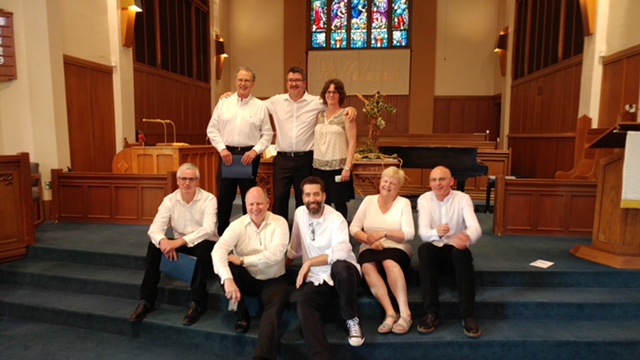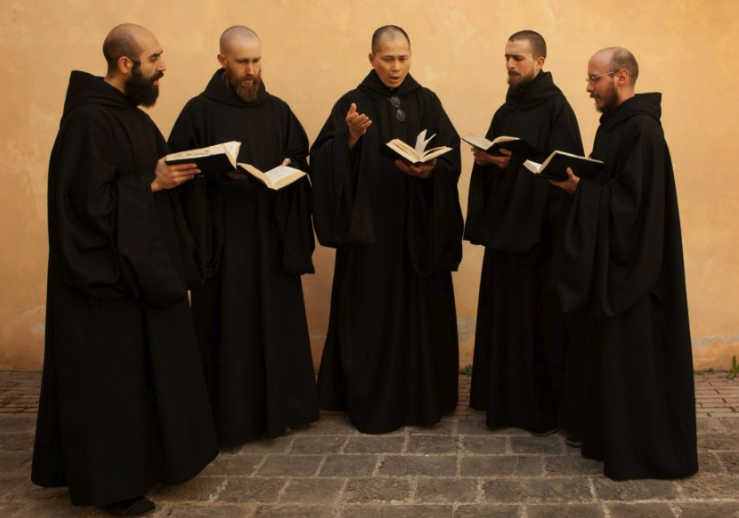Every second Tuesday, starting in September, I join a small group of elite singers… Look, can I be honest for a moment? We’re so good we could all have successful music careers if we hadn’t decided to take ordinary jobs, no really… sorry I digress.
Where was I? Oh yes… Every second Tuesday we meet at a local church for an hour to practice Gregorian chant led by our lovely choirmaster, Colleen. It’s a wonderful but short lived opportunity to slip away from the shitness of the Trumpian world into a bygone era of Latin plainsong, pillaging, gout and rampant Plague.

If you’ve never explored the world of monophonic music, I highly recommend dipping a toe or two in. The origins of so many modern hymns, film soundtracks and great classical pieces are hiding there in plain (sorry) sight. For the choral duffer, it’s an easy place to start your singing career because it uses simple-ish, unharmonised melodies sung in the same register by the whole choir. Although plain song structure is usually complicated by a lack of time signature so regular practice is needed to nail down the commonly used melodic / rhythmic patterns.
The Dies Irae (Day of Rage) is one of the most famous themes. Well over a thousand years old, it’s popped up all over the place down the centuries. In the 20th Century it was written into Mike Oldfield’s Tubular Bells, and some of the music from the Star Wars movies. Genesis used it in Attack of the Giant Hogweed (yes that’s a real song). Here’s an interesting vignette from Canada’s CBC on how Dies Irae has influenced modern and ancient music.
Despite the apparent simplicity of most plain song, the more you work at it, the more you realise why only Monks have ever really nailed it. They’re the only ones with enough time on their hands to put in the hours needed to make it sound great. A typical day in the life of Brother Francis …Wake up at 4am. Practice the liturgy in plain song. Fast. Bit more practice from 8-10am. Confession. Practice liturgy. Fast again while confessing. Practice. And so on, interspersed with some chicken feeding and gardening till midnight when they wind up another hard day with more plain song before bed washed down with an invigorating cup of hot water. Musical perfection ensues.


